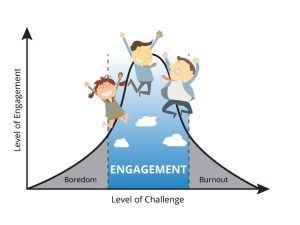Is Small Business Marketing the Right Fit for Me?

“Marketing” is a pretty broad term, and it means a lot of different things to different people.
The same is true for the term “small business.” Where do you fall on this spectrum?
Now you may be asking yourself, “why is this even important?”
Here’s why:
Small businesses have different needs, different ways of doing things and ultimately, small businesses have different marketing goals and objectives.
So, it’s crucial (for the success of your overall marketing) to know where you fall in this big ole’ world of business.
Case in point:
The U.S Small Business Administration includes businesses with up to $ 7 million in revenue or 500 employees as part of the small business definition.
Now, I don’t know about y’all, but that’s not what I mean when I say “small business.”
I want to take a moment to talk definitions and break down the term “small business marketing.” I mean, hey, this is who we work with and what we do after all, so we might as well be clear.
The Definition of Small Business and Small Business Marketing
Are you a small business? How would you know?
The term “small business” really varies based on your industry. “Small” is certainly relative to your market and your competition.
Here’s a few ways that we define “small” when it comes to the type of biz we work with:
- Solo-Preneur
- 50 Employees or Less
- 3 or Less Retail Shops
- Primary Book of Business Is Local
US Census Data shows that 95% of businesses have 9 employees or less. That sounds more like small business to me!
What We Mean When We Say Marketing
The world of small business marketing is broad, ranging from traditional print pieces or radio ads on into social media and email marketing.
A lot of times, when we say marketing, people automatically think about something more tangible, like a print piece, a commercial, or a website.
These are certainly elements of marketing, but the real meat and potatoes comes from the behind-the-scene components of marketing—what I like to call the “planning stages.”
Here’s how the business dictionary defines marketing:
“The management process through which goods and services move from concept to the customer. It includes the coordination of four elements called the 4 P’s of marketing:
(1) identification, selection and development of a product,
(2) determination of its price,
(3) selection of a distribution channel to reach the customer’s place, and
(4) development and implementation of a promotional strategy.”
Most people tend to go directly to the advertising and promotional side of marketing (and skip over critical pieces of the development phase, like audience, branding, and content).
For example, you must first really know your audience in order to tailor the product, price, and distribution channels to their needs. It’s no good distributing a product to a place your customers would never visit!
Marketing is a process, the process of taking your prospect through the sales cycle with really clear communication, starting with the planning phase and moving all the way through the implementation phase.
It’s a strategy that you design and implement, one specific to your business’ needs.
Marketing is not just the brochure that you printed or the website that you designed—it’s much more holistic. First, think development, brainstorming, and planning, before you start pumping out ads.
Is Small Business Marketing the Right Approach?
This is a tough question, and it really depends on your unique situation. That’s why I made this fancy little checklist to help you sort it out!
If one of these applies to you, then you, my friend, are all about that small business marketing:
- You want to have a local presence
- You have limited resources (this includes your employees, time, and cash).
- You don’t have an established brand
Sound like you? Then you’re in the right place 
What does small business marketing mean to us? It’s not just a jumble of mechanics or words.
It’s an ideology, an attitude.
Instead of focusing on ALL the channels or strategies that you need to be implementing (because that’s what everyone else is doing), we stop and take a look at your overall budget and your top goals.
We then work backwards to determine where you’d be able to get the highest ROI (or just the biggest bang for your buck).
Sometimes, this is something you can determine on your own — other times, you may need a little help.
It really depends on your comfort level, time for research, and knowledge of the marketing options available.
It’s not rocket science y’all — it’s just that, a lot of times, you’re better off focusing on your area of expertise and leaving the marketing planning and strategy up to the experts.
Business & Finance Articles on Business 2 Community(46)
Report Post







